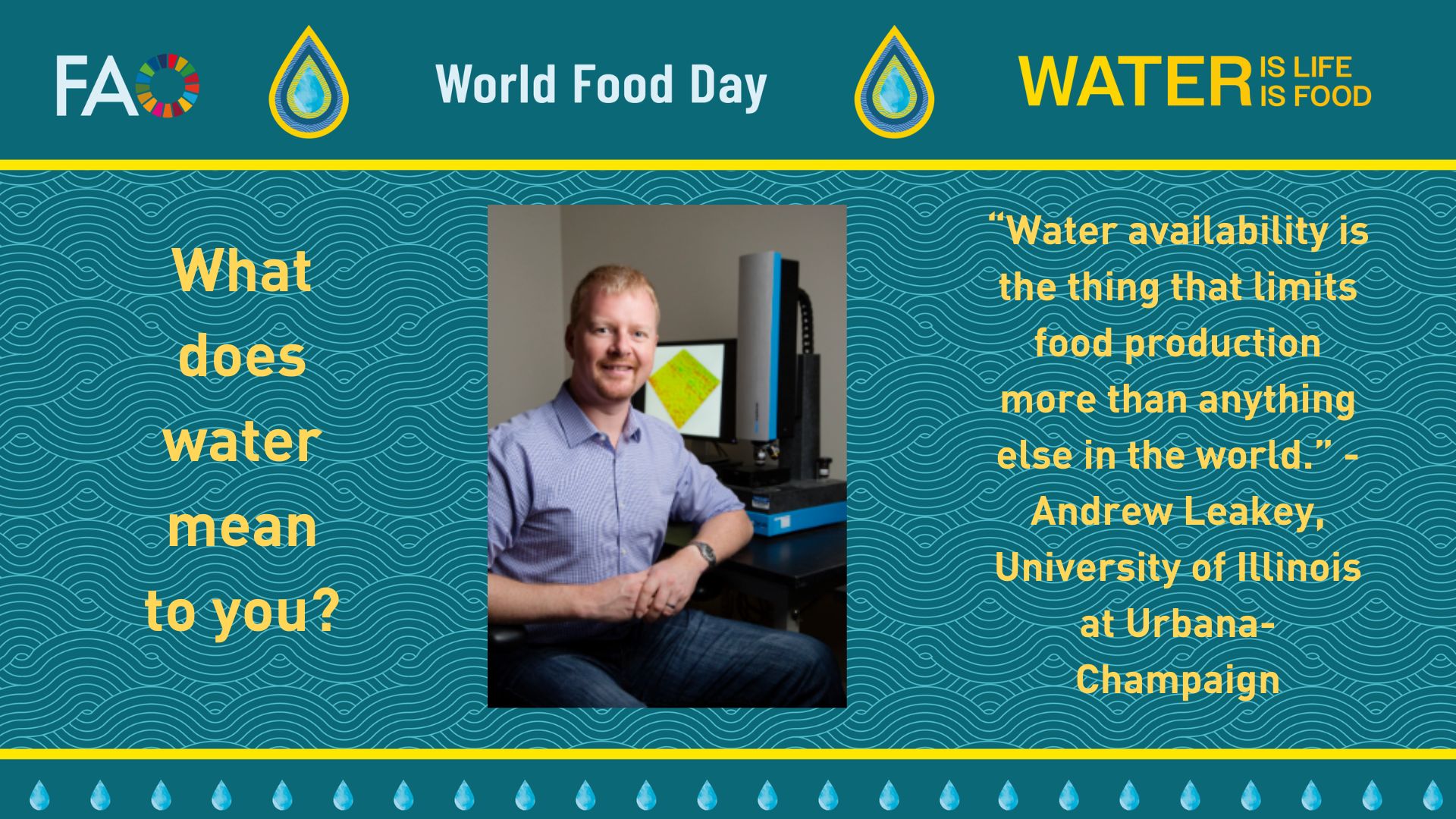What does water mean to you, Andrew Leakey?
“What does water mean to you?” This question has been asked to many people worldwide as a campaign to spread awareness about water scarcity and how it affects food production and world hunger. The Food and Agriculture Organization of the United Nations (FAO) created a day to bring awareness to world hunger and food called World Food Day, and this year's theme is water.
Andrew Leakey sees this question differently from the average person as a researcher working to make plants and, more importantly, food crops, more water efficient. He thinks of how water availability affects crop production and how RIPE's research can help plants live longer in water-stressed environments. Plants need water to grow and survive; without water, there will be no plants and no food for living organisms, so water is crucial for the world to function.
“I am fortunate enough to live somewhere where I just turn the faucet on, and clean water comes out,” said Leakey.

The motto for this year's World Food Day is "Water is life, water is food, leave no one behind." When asked how his research fits into this motto, Leakey said he is looking into making crops more water efficient, specifically at how to have plants store water in the soil, which is known as banking water. The plants won’t need to be watered as often and can use the banked water under stressful conditions. This is especially important since water loss is happening more often with the warming climate.
Leakey is a professor and the head of the Plant Biology Department at the University of Illinois Urbana-Champaign (UIUC). In addition to being a principal investigator for the RIPE project, he is also the Director of the Center of Advanced Bioenergy and Bioproducts Innovation at UIUC. An experience that formed his interest in this field of food production was when he was able to go to East Africa, where his father grew up, and worked and learned from the different local farmers and saw how their agricultural processes are different from what is practiced in the West.
Leakey hopes the future of his work can involve collaborations with farmers and industrial partners to test his research in the real world. The work of the RIPE Project, and Leakey’s work specifically, is just one part of the necessary efforts to conserve water and end food insecurity globally.
RELATED RIPE OBJECTIVES
Mesophyll Conductance